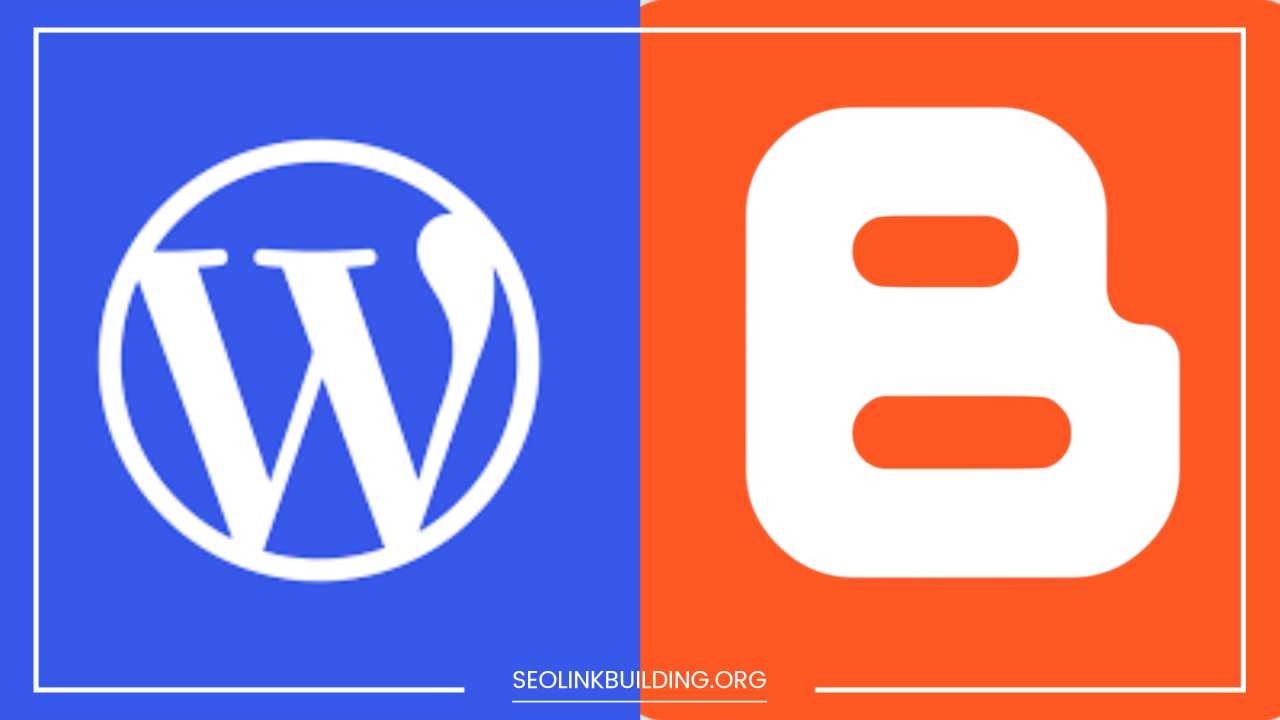WordPress or Blogger? A Beginner’s Guide

WordPress or Blogger
WordPress vs. Blogger: Choosing the Perfect Platform for Your Blog
So, you’ve decided to embark on the exciting journey of blogging! Sharing your thoughts, ideas, and passions with the world is a fantastic way to connect with others and establish yourself as an authority in your field. But before you dive headfirst into content creation, a crucial first step is choosing the right platform for your blog. Two popular options are WordPress and Blogger, and each offers distinct advantages and considerations.
This comprehensive guide will delve into the key differences between WordPress and Blogger, empowering you to make an informed decision that aligns with your blogging goals.
In the Spotlight: Blogger
Blogger, owned by Google, is a free, user-friendly blogging platform that simplifies the process of creating and publishing content. Here’s a closer look at its strengths:
-
Effortless Setup: Blogger boasts a straightforward setup process. With a Gmail account, you can quickly create a blog and start writing within minutes. This ease of use makes it an excellent choice for beginners who want to get started blogging without technical hurdles.
-
Free Forever: As a Google service, Blogger is entirely free to use. There are no hidden costs or monthly subscriptions involved. This makes it an attractive option for those on a budget or just starting. Google manages the server infrastructure, so you don’t have to worry about maintenance or web hosting.
-
Integration with Google Products: Blogger seamlessly integrates with other Google products like Google Analytics and AdSense. This allows you to easily track your blog’s traffic and explore monetization options through advertising.
-
Mobile-Friendly Interface: Blogger offers a mobile-friendly interface, making it convenient to manage your blog and create content on the go. This caters to the growing trend of mobile internet usage.
However, Blogger also comes with some limitations:
-
Limited Customization: Blogger offers a limited selection of themes and templates compared to WordPress. While you can customize the layout and colors to some extent, the design flexibility is somewhat restricted. Your blog’s overall aesthetic might feel more generic due to the limited themes.
-
Restricted Monetization Options: While AdSense integration is available, Blogger offers fewer options for monetization compared to WordPress. You have less control over displaying advertisements and exploring alternative revenue streams like e-commerce plugins. If you envision your blog evolving into a profitable online venture, Blogger might not be the most suitable platform.
-
Limited Features and Plugins: Blogger offers a basic set of features, and the selection of plugins is significantly smaller compared to WordPress. This can limit your ability to add advanced functionalities like contact forms, membership options, or SEO plugins. Building a highly interactive and feature-rich blog is more challenging with Blogger.
-
Less Control Over Your Blog: Ultimately, your blog resides on Google’s platform, and you have to abide by their terms and conditions. This means less control over branding and customization compared to a self-hosted platform like WordPress. You might face limitations if you want to incorporate unique branding elements or have specific requirements for data ownership.
WordPress: Power and Flexibility
WordPress, on the other hand, is a self-hosted content management system (CMS) known for its power and flexibility. Here’s what makes it stand out:
-
Unmatched Customization: WordPress reigns supreme when it comes to customization. With a vast library of free and premium themes available from independent developers, you can create a unique and professional-looking blog that perfectly reflects your brand and style. The customization options are virtually limitless, allowing you to tailor every aspect of your blog’s design and functionality to your vision.
-
Scalability and Growth: WordPress is a robust platform that can grow with your blog. As your blog gains traction and your needs evolve, WordPress can seamlessly adapt to accommodate new functionalities and features. Whether you want to add an online store, create membership sections, or integrate advanced analytics tools, WordPress has the scalability to support your ambitions.
-
E-commerce Capabilities: WordPress excels in e-commerce functionality. With powerful plugins like WooCommerce, you can easily transform your blog into an online store, perfect for selling products or services directly to your audience. This opens up a lucrative revenue stream for bloggers who want to monetize their content beyond advertising.
-
SEO Optimization: WordPress offers superior SEO (Search Engine Optimization) capabilities. Numerous plugins like Yoast SEO help you optimize your content for search engines, increasing your blog’s visibility and organic traffic. By improving your search ranking, you can attract a wider audience and establish yourself as a thought leader in your niche.
-
Complete Control: With WordPress, you have complete control over your blog. You choose your web hosting provider, manage your domain name, and have the freedom to modify your blog as you see fit. This ownership allows for greater flexibility and customization compared to a hosted platform like Blogger.
However, WordPress also comes with its own set of considerations:
-
Learning Curve: While WordPress offers a user-friendly interface, there’s a slight learning curve compared to Blogger. Setting up your own web hosting and installing themes/plugins might require some technical knowledge. However, numerous resources and tutorials are available online and from web hosting providers to help beginners navigate the platform. The initial learning investment can be well worth it for the long-term benefits of customization and control.
-
Self-Hosted Costs: WordPress itself is free to use, but you’ll need to pay for web hosting and potentially a domain name. The cost varies depending on the provider and chosen plan, but it’s generally quite affordable. There are also premium themes and plugins available, but there’s a vast selection of free options that cater to most basic needs.
-
Maintenance Responsibilities: With self-hosting, the responsibility of maintaining your blog falls on you. This includes software updates, backups, and security measures. However, many web hosting providers offer managed WordPress hosting solutions that handle these aspects for you, often for a slightly higher fee.
Choosing the Right Platform: A Breakdown
Here’s a quick breakdown to help you decide which platform best suits your needs:
| Feature | Blogger | WordPress |
|---|---|---|
| Ease of Use | Very easy, ideal for beginners | Moderate learning curve |
| Cost | Free | Requires web hosting and potentially domain |
| Customization | Limited themes and templates | Extensive customization with themes & plugins |
| Monetization | Limited options (mainly AdSense) | Diverse options (e-commerce, ads, etc.) |
| Features & Plugins | Basic features, limited plugins | Extensive features & plugin library |
| Control | Less control, hosted by Google | Complete control, self-hosted |
| SEO | Basic SEO options | Superior SEO capabilities with plugins |
Who Should Choose Blogger?
- Beginners who want a quick and easy way to start blogging.
- Casual bloggers who don’t require extensive customization or advanced features.
- Those on a tight budget who can’t afford web hosting costs.
- Bloggers who are comfortable with Google’s terms and limitations.
Who Should Choose WordPress?
- Bloggers who prioritize design and want a unique, professional-looking blog.
- Bloggers who have long-term plans to grow their blog and add functionalities.
- Bloggers who want to explore e-commerce opportunities.
- Bloggers who are serious about SEO and want to maximize organic traffic.
- Bloggers who value complete control and ownership of their platform.
Beyond the Basics: Additional Considerations
Here are some additional factors to consider when making your decision:
- Community and Support: Both WordPress and Blogger have large communities, but WordPress boasts a wider range of resources, tutorials, and forums due to its open-source nature.
- Security: With self-hosted WordPress, security becomes your responsibility. Choose a reputable web hosting provider with robust security measures, and keep your software updated. Blogger, being a hosted platform, handles security on your behalf.
- Technical Expertise: If you’re comfortable with some technical learning, WordPress offers greater flexibility. However, there are user-friendly managed WordPress hosting options that minimize technical requirements.
Making the Final Choice
The best platform for your blog ultimately depends on your individual needs and goals. Consider your technical comfort level, budget, blogging aspirations, and desired level of customization.
- If you’re a beginner seeking a simple and free platform to experiment with blogging, Blogger is a great starting point.
- If you envision your blog evolving into a professional, feature-rich platform with the potential for e-commerce and significant growth, WordPress offers the power and flexibility to support your ambitions.
Remember, you can always start with Blogger and migrate to WordPress later if your needs change. There are tools and plugins available to facilitate a smooth transition between platforms.
I hope this comprehensive guide empowers you to make an informed decision and embark on your blogging journey with the perfect platform as your foundation. Happy blogging!













